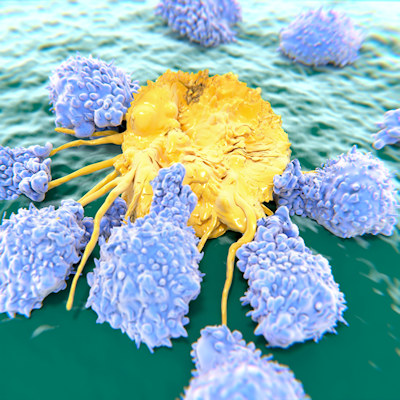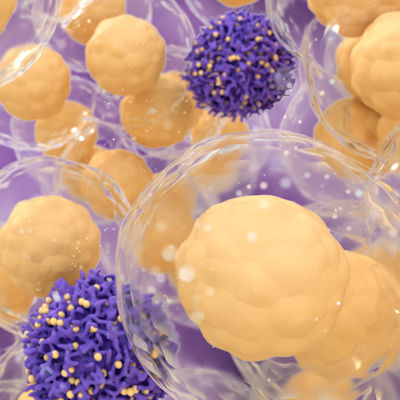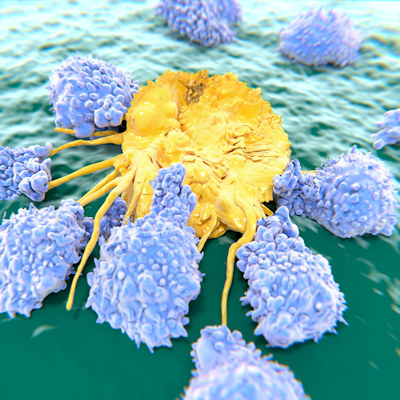November 29, 2022 -- Scientists from the Garvan Institute of Medical Research have found new insight into the role that killer T cells play in leukemia and autoimmune disease. They contend that their findings could be helpful in narrowing down pathways to target these cells for future treatments.
In their study, published November 28 in the journal Immunity, the researchers describe how gene variations affecting a protein that controls the growth of killer T cells can turn them rogue. These rogue killer T cells drive autoimmunity and are likely one of the cell types most directly contributing to autoimmune disease, according to the authors.
The researchers used high-resolution screening methods to look at blood from children with rare inherited autoimmune diseases. They then used CRISPR-Cas9 in mouse models to investigate what happens when the protein STAT3 is genetically altered.
The team found that if these proteins are altered, they can cause rogue killer T cells to grow unchecked, resulting in enlarged cells that bypass immune checkpoints to attack the body's own cells. In addition, even just 1% to 2% of a person's T cells going rogue could cause autoimmune disease.
The researchers also identified two specific receptor systems that are linked to stress.
"Part of what's driving these rogue cells to expand as killer T cells is the stress-sensing pathways. There is a lot of correlation between stress, damage, and ageing. Now we have tangible evidence of how that's connected to autoimmunity," Chris Goodnow, PhD, professor and head of the immunogenomics lab and chair of the Bill and Patricia Ritchie Foundation at Garvan, said in a statement.
Going forward, the study's findings could be applied to development of screening technologies that clinicians could use to sequence the complete genome of every cell in a blood sample to identify which cells might turn rogue and cause disease, according to the authors.
They note that further study is needed to determine whether rogue killer T cells are involved in all autoimmune diseases, and what proportion of people with rheumatoid arthritis and other autoimmune conditions have rogue cells and STAT3 variations.
Copyright © 2022 scienceboard.net











